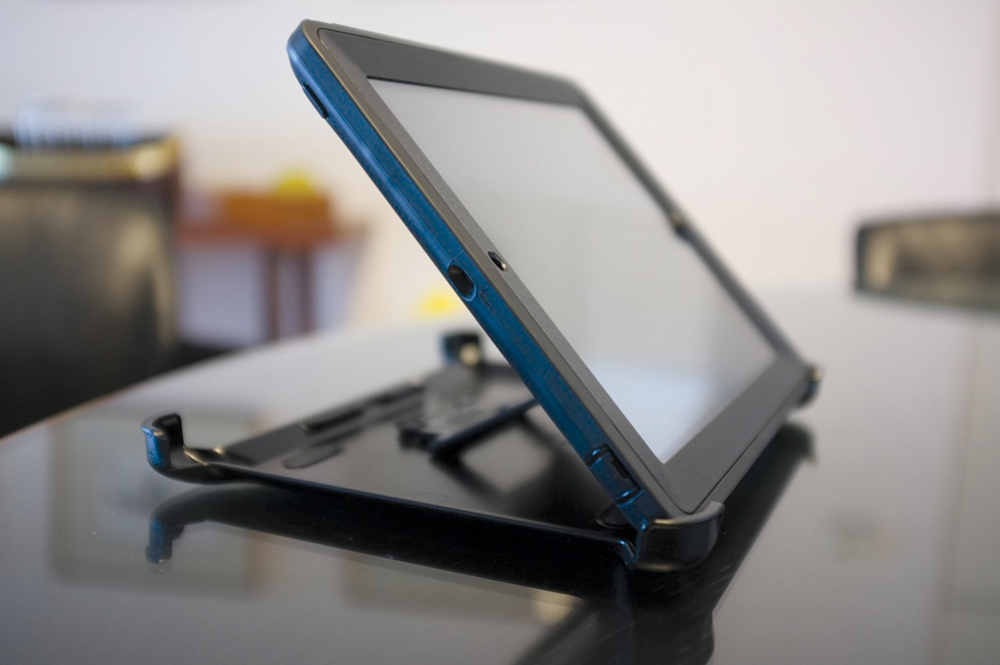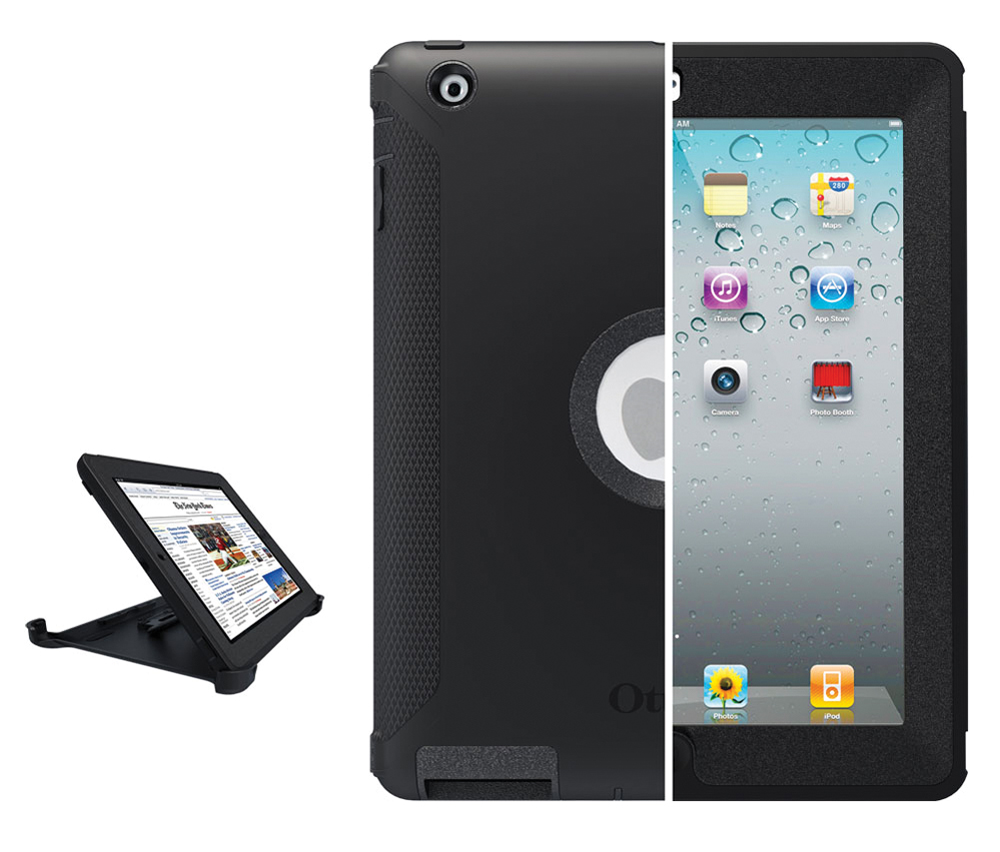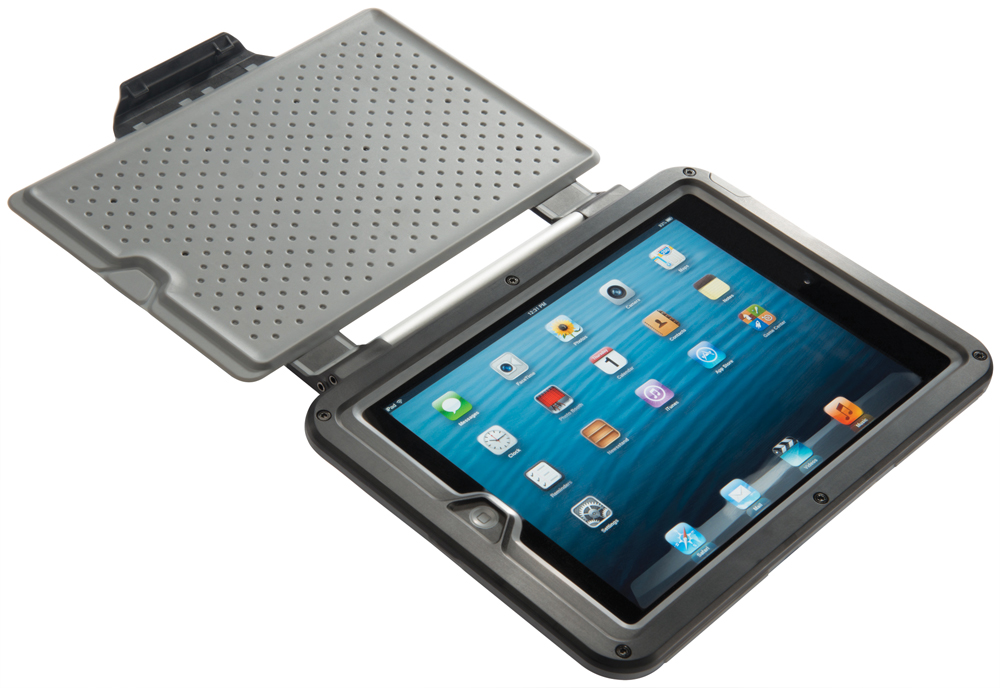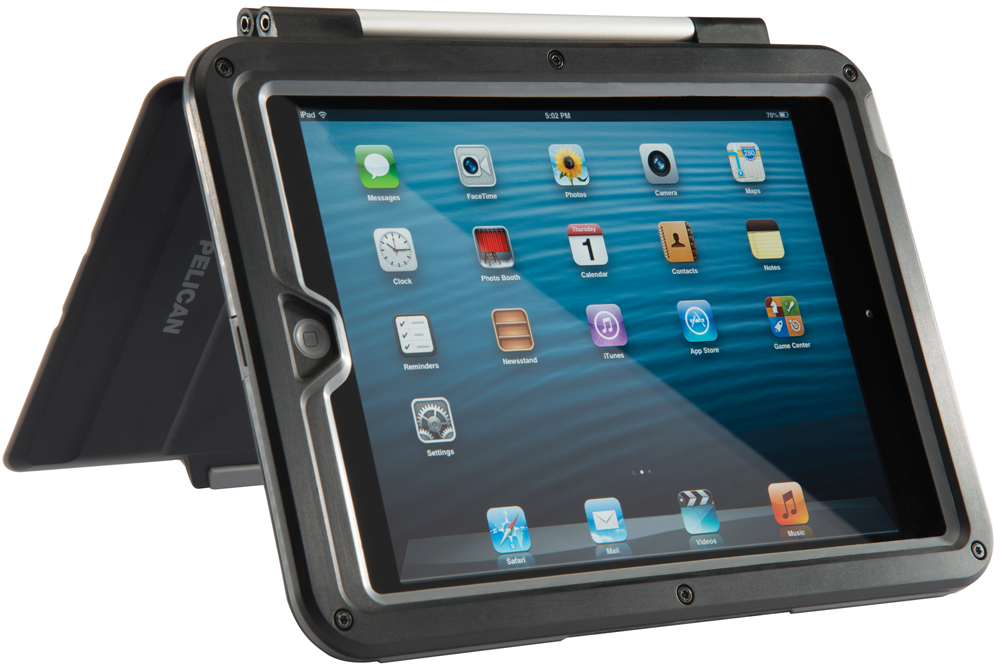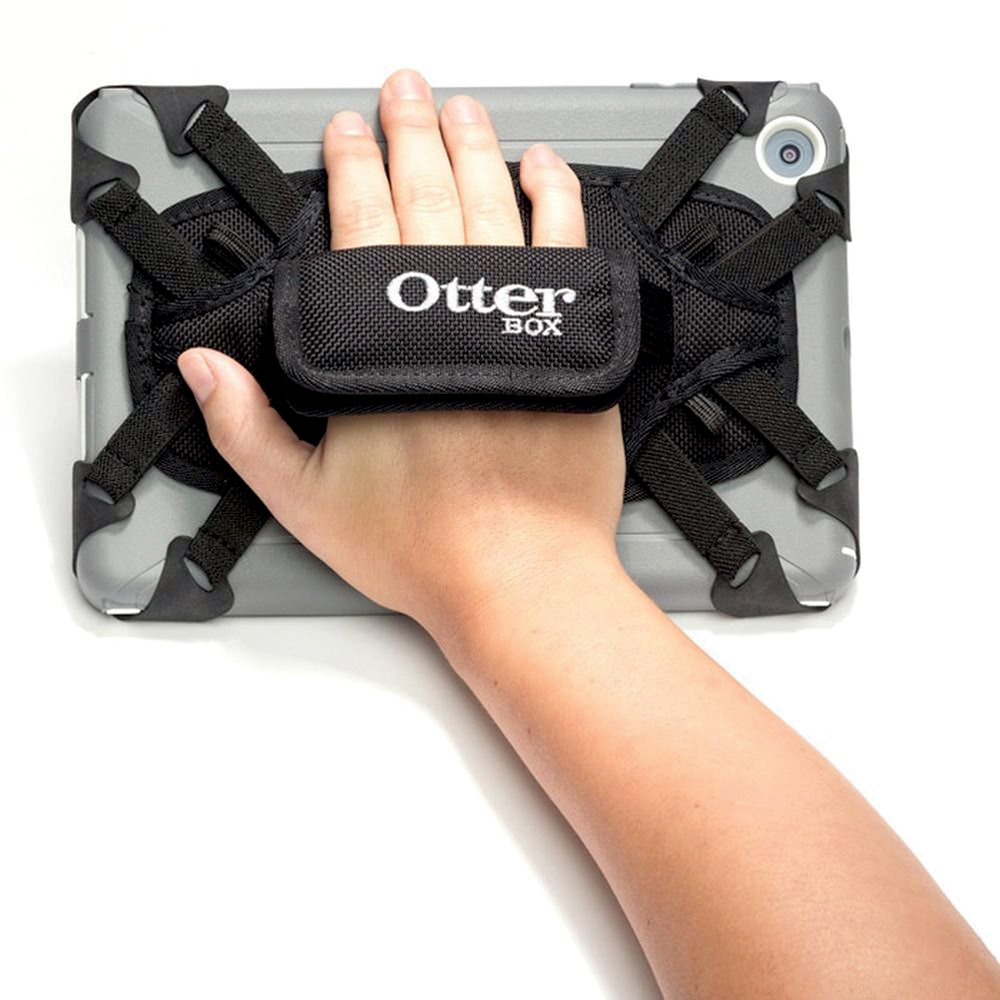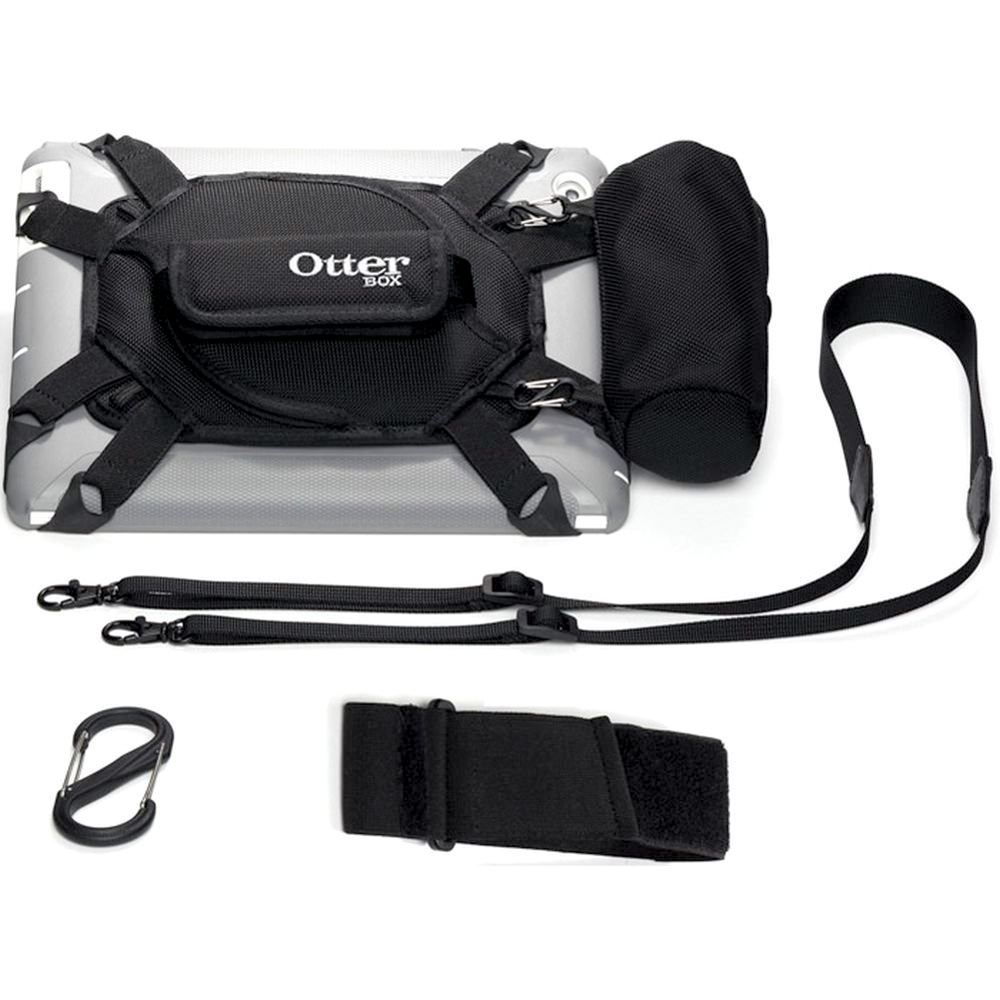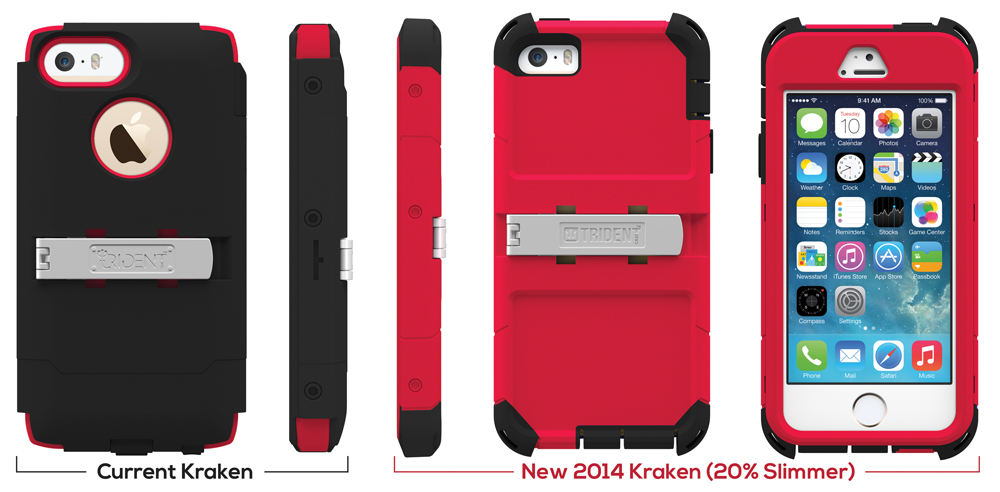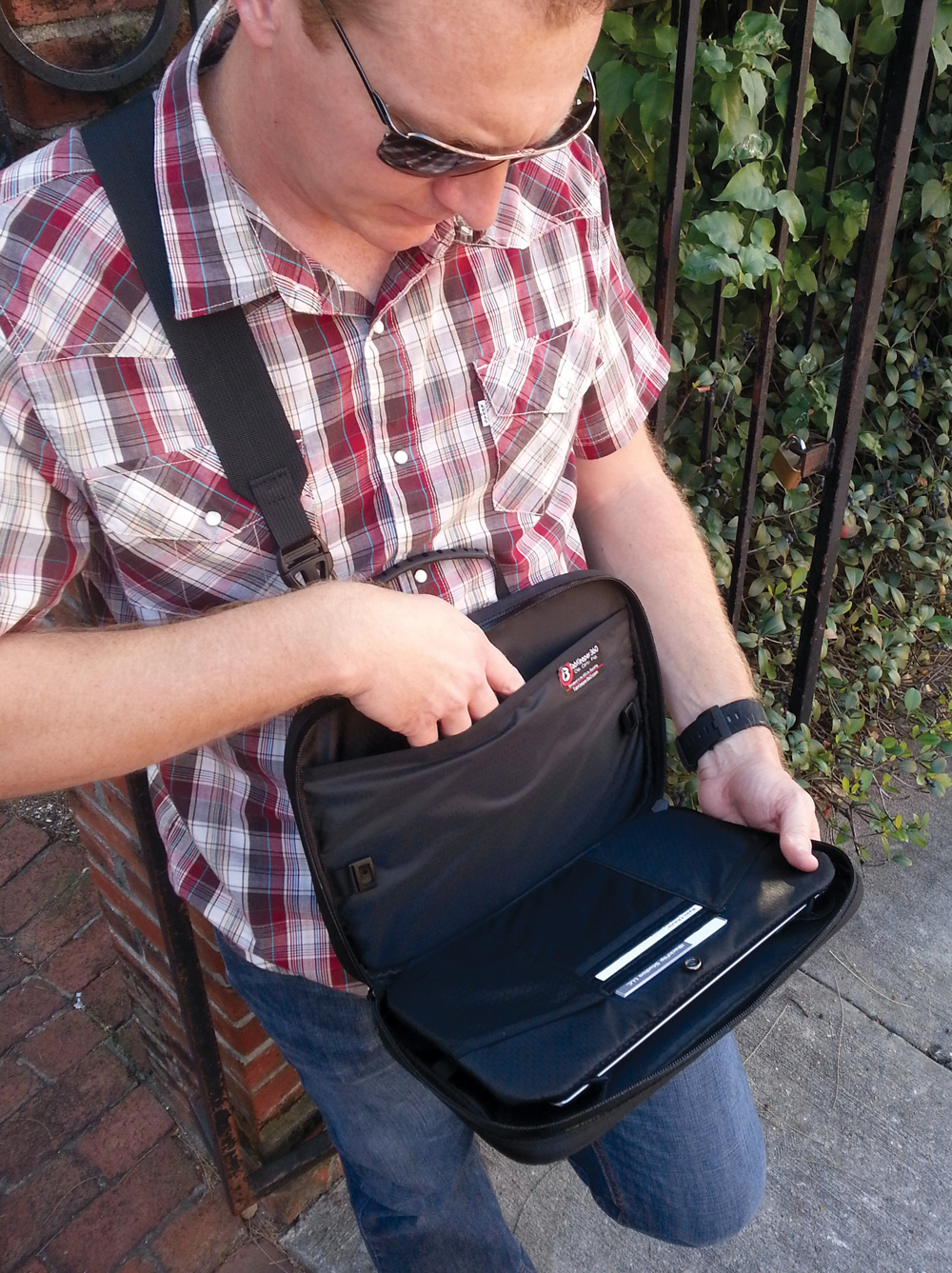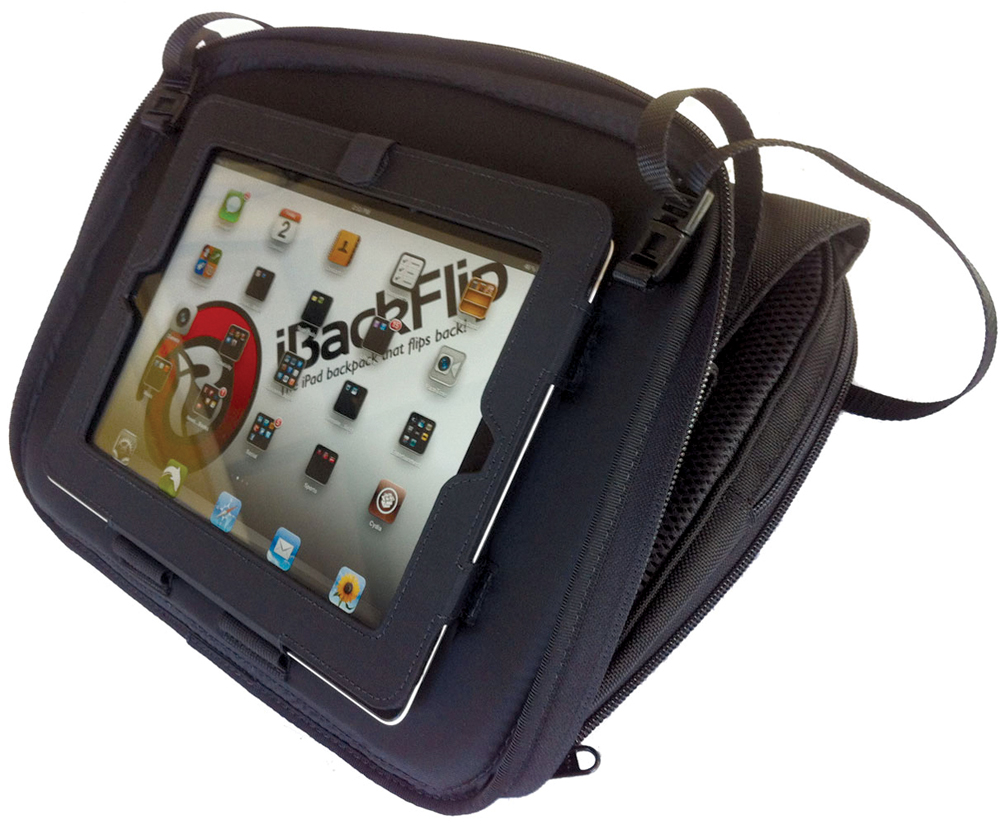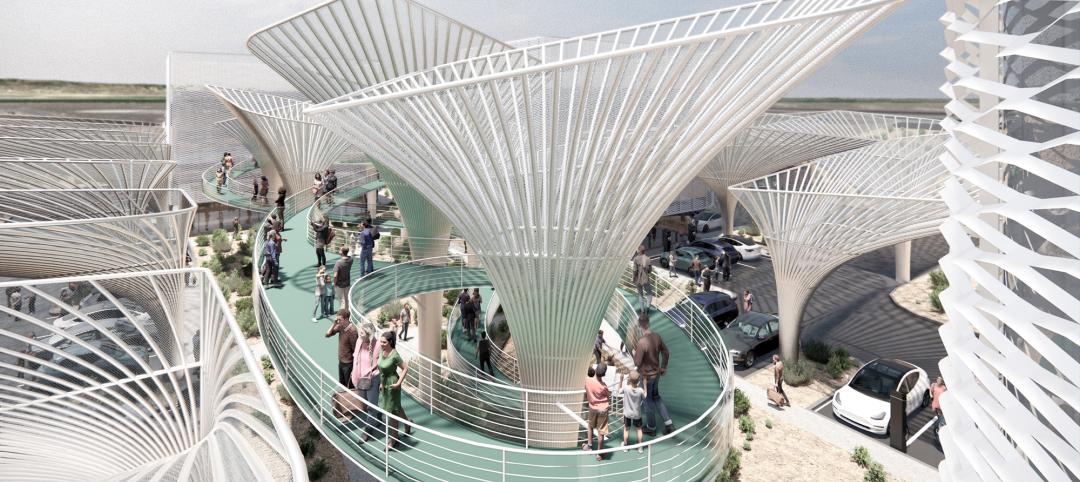When it comes to rugged mobile devices for the AEC market, the story lately has had less to do with the hardware itself and more with the deluge of hardened and weather-resistant cases, bags, and accessories to hit the market.
Sure, companies like Motion Computing, Panasonic, Trimble, and even Caterpillar (read our review of Cat's new rugged phone) continue to manufacture ruggedness-built-in tablets and smartphones. But many AEC firms are choosing to go with less costly consumer-grade mobile devices (iPad, iPhone, Galaxy, etc.) hardened with third-party accessories.
“From my perspective, rugged means heavy and slow,” says Peter Rumpf, Integrated Construction Manager with Mortenson Construction, and a BD+C “40 Under 40” honoree (class of 2012). “Our strategy is to treat the mobile device as a consumable and let the end user protect their device as they see fit.”
To find out which cases and accessories are popular among AEC professionals, we reached out to several BD+C readers with expertise in computer hardware. Here’s what they recommend (with some editors’ favorites mixed in):
1. OtterBox Defender Series iPad case
A mainstay in the rugged mobile device market, the Defender Series iPad case uses a multi-layer approach to protect tablets from bumps, shocks, drops, and dust (but not water) intrusion. An inner, two-piece polycarbonate shell has a foam interior for shock absorption, and a silicone outer layer absorbs impact from bumps and shocks. The textured exterior offers enhanced grip, and a built-in screen protector prevents scratches, smudges, and fingerprints. The integrated shield stand acts as a protective cover and doubles as a kickstand for typing or viewing. $89.95
Why BD+C reader Jarrod Krug recommends it: “Several customers have told us that they run Autodesk BIM 360 Field on iPads in these OtterBox cases—collectively on hundreds of devices at dozens of job sites—and they have performed in the worst of environments, with little or no issues.” —Jarrod Krug, BIM 360 Industry Marketing Manager, Autodesk
OtterBox | www.otterbox.com
2. Pelican ProGear Vault Series for the iPad Air and iPad mini
Designed for the military, law enforcement, and fire services industries, the Pelican ProGear Vault Series for the iPad Air and iPad mini is engineered with an elastomeric copolymer interior that absorbs impact forces, even drops from up to four feet. The case features an ingress protection rating of 54 for safeguarding against extreme elements, such as wind-driven rain, dust, dirt, snow, and sand. Optical-grade Dragontrail glass on the rear camera offers maximum clarity without sacrificing protection. $99.95 ($79.95 for iPad mini version)
Why we recommend it: The Pelican provides the ruggedness required for almost any job site with some nice performance features like a nifty hinged cover that doubles as a stand and a water-resistant membrane that protects the microphone and speakers without sacrificing voice quality.
Pelican Products | www.pelicanprogear.com
3. OtterBox Utility Series Latch II carrying case
The Utility Series Latch II carrying case comes with a versatile set of straps for multiple carrying, tethering, and display options—including palm grip, over-the-shoulder sling, and desktop stand. Designed for Defender Series tablet cases, the Latch II works with most 10-inch tablets. An optional accessory bag comes with a leg strap, S-biner, and neck strap, and doubles as a tablet stand. $39.95 ($49.95 with accessory bag)
Why BD+C reader Megan Looby recommends it: “This product is great because it has a long strap that allows you to wear your tablet across your body while in the field, leaving your hands free. On a recent job, almost all the subs used them to protect their iPads, which were used extensively for accessing drawings and specs in the field.” — Megan Looby, Project Manager, CBRE Healthcare
OtterBox | www.otterbox.com
4. Trident Kraken A.M.S Series case for the iPhone 5
Mention the term “rugged” and often what comes to mind is “bulky,” “heavy,” or “sluggish.” Sure, that smartphone can take a beating, but good luck stuffing it in your pocket. The re-engineered Kraken A.M.S Series case for the iPhone 5 and 5s is designed to provide the best of both worlds: impact and weather protection in a slim, ergonomic package. The case is 20% thinner than its predecessor, yet still meets the MIL-STD-810F standard for performance and durability in harsh environments. $49.95
Why we recommend it: It offers the protection of a heavy-duty case in a wrap not much thicker than light-duty cases. It comes equipped with a handy media stand that can be switched out with accessories geared for fieldwork, like a belt clip, windshield mount, and universal mount.
Trident Case | www.tridentcase.com
5. iBackFlip Somersault case
The iBackFlip Somersault has become popular among AEC professionals for its dual functionality—the backpack doubles as a hands-free mobile workstation. Flip the carrying case from back to front, unzip the pouch, and you’re ready to work on your tablet device. Adjustable straps keep the tablet at an ideal angle for the user. The straps can be disengaged and the case flipped 180 degrees for use on a desktop or other flat surface. $89.95
Why we recommend it: While not rugged, the Somersault gets our vote for its blend of convenience, functionality, and portability. The durable, water-resistant bag provides quick, on-the-go access to almost any tablet device (even small laptops like the 13-inch MacBook Air) and features pockets, utility hooks, stylus holders, and other storage and performance goodies.
BackFlip Studios | http://ibackflip.com
Related Stories
Steel Buildings | Apr 6, 2023
2023 AISC Forge Prize winner envisions the gas station of the future
Forge Prize winner LVL (Level) Studio envisions a place where motorists can relax, work, play, shop, or perhaps even get healthcare while their vehicles charge.
Architects | Apr 6, 2023
New tool from Perkins&Will will make public health data more accessible to designers and architects
Called PRECEDE, the dashboard is an open-source tool developed by Perkins&Will that draws on federal data to identify and assess community health priorities within the U.S. by location. The firm was recently awarded a $30,000 ASID Foundation Grant to enhance the tool.
Architects | Apr 6, 2023
Design for belonging: An introduction to inclusive design
The foundation of modern, formalized inclusive design can be traced back to the Americans with Disabilities Act (ADA) in 1990. The movement has developed beyond the simple rules outlined by ADA regulations resulting in features like mothers’ rooms, prayer rooms, and inclusive restrooms.
Market Data | Apr 6, 2023
JLL’s 2023 Construction Outlook foresees growth tempered by cost increases
The easing of supply chain snags for some product categories, and the dispensing with global COVID measures, have returned the North American construction sector to a sense of normal. However, that return is proving to be complicated, with the construction industry remaining exceptionally busy at a time when labor and materials cost inflation continues to put pricing pressure on projects, leading to caution in anticipation of a possible downturn. That’s the prognosis of JLL’s just-released 2023 U.S. and Canada Construction Outlook.
Cladding and Facade Systems | Apr 5, 2023
Façade innovation: University of Stuttgart tests a ‘saturated building skin’ for lessening heat islands
HydroSKIN is a façade made with textiles that stores rainwater and uses it later to cool hot building exteriors. The façade innovation consists of an external, multilayered 3D textile that acts as a water collector and evaporator.
Market Data | Apr 4, 2023
Nonresidential construction spending up 0.4% in February 2023
National nonresidential construction spending increased 0.4% in February, according to an Associated Builders and Contractors analysis of data published by the U.S. Census Bureau. On a seasonally adjusted annualized basis, nonresidential spending totaled $982.2 billion for the month, up 16.8% from the previous year.
Sustainability | Apr 4, 2023
ASHRAE releases Building Performance Standards Guide
Building Performance Standards (BPS): A Technical Resource Guide was created to provide a technical basis for policymakers, building owners, practitioners and other stakeholders interested in developing and implementing a BPS policy. The publication is the first in a series of seven guidebooks by ASHRAE on building decarbonization.
Sustainability | Apr 4, 2023
NIBS report: Decarbonizing the U.S. building sector will require massive, coordinated effort
Decarbonizing the building sector will require a massive, strategic, and coordinated effort by the public and private sectors, according to a report by the National Institute of Building Sciences (NIBS).
Education Facilities | Apr 3, 2023
Oklahoma’s Francis Tuttle Technology Center opens academic center for affordable education and training
Oklahoma’s Francis Tuttle Technology Center, which provides career-specific training to adults and high school students, has completed its Francis Tuttle Danforth Campus—a two-story, 155,000-sf academic building. The project aims to fill the growing community’s rising demand for affordable education and training.
Sports and Recreational Facilities | Mar 30, 2023
New University of St. Thomas sports arena will support school's move to Division I athletics
The University of St. Thomas in Saint Paul, Minn., last year became the first Division III institution in the modern NCAA to transition directly to Division I. Plans for a new multipurpose sports arena on campus will support that move.



